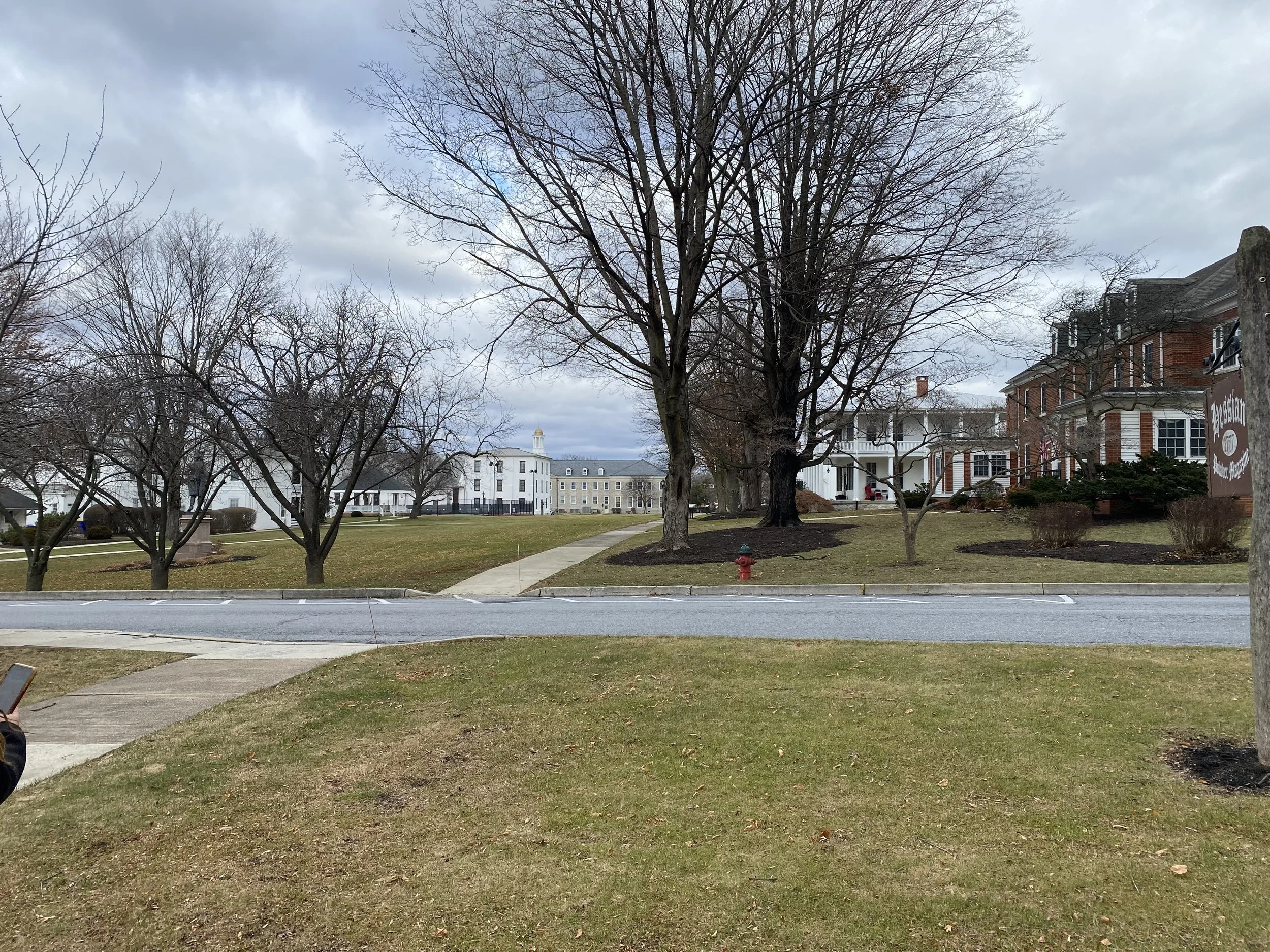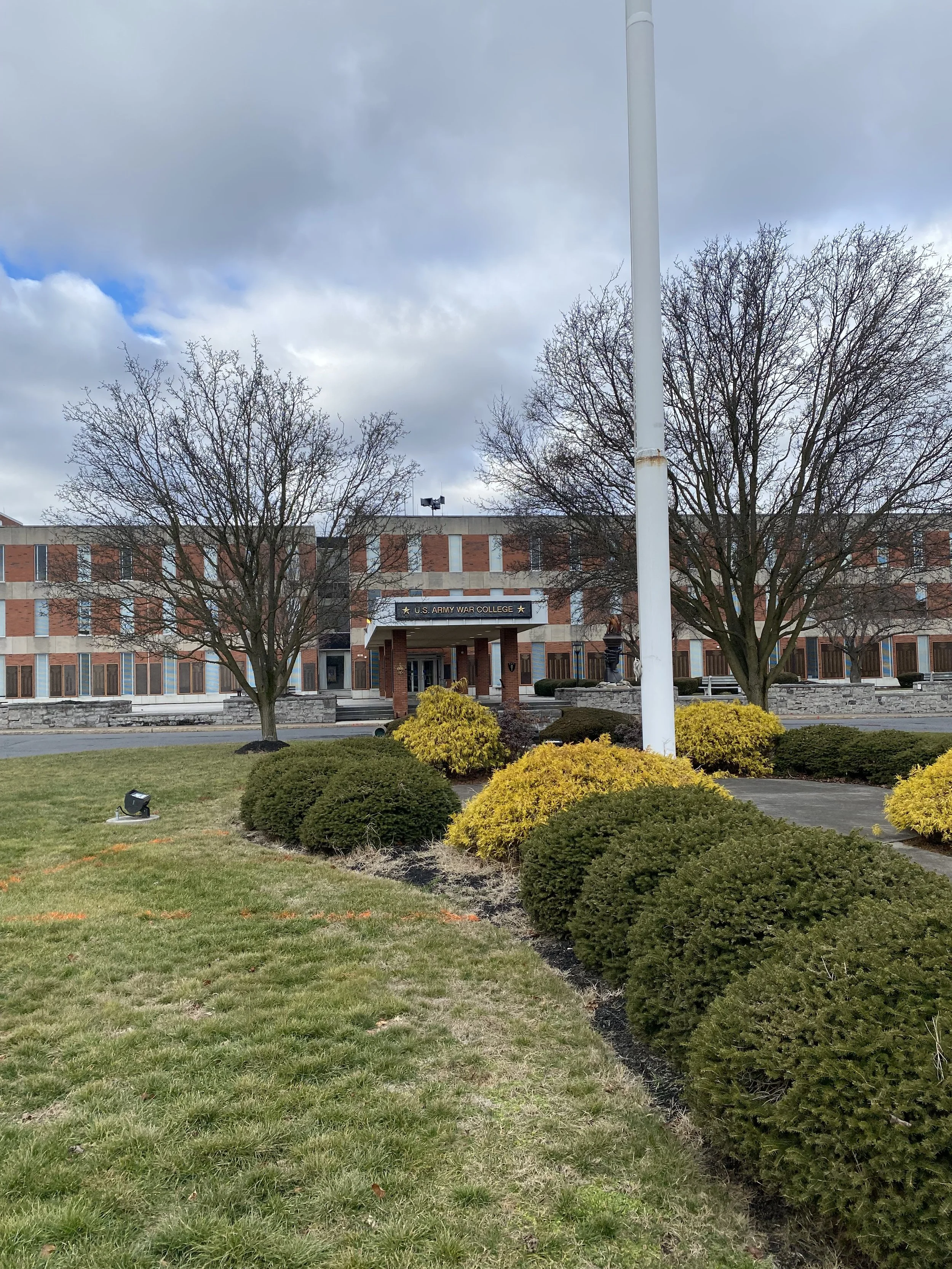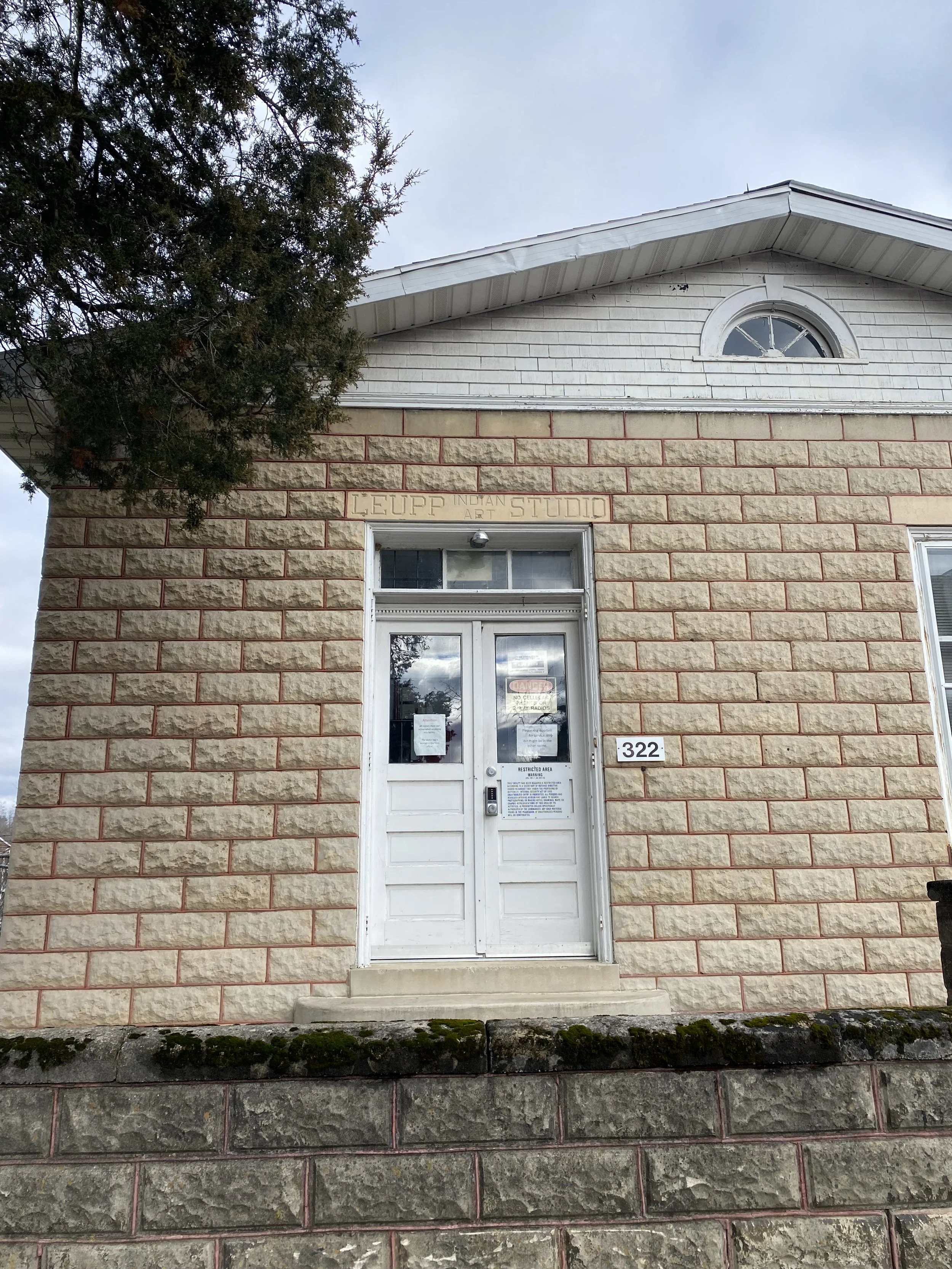Boarding School Project team visits Carlisle, PA
A view of the grounds, now part of the Army base. Most of the white-colored buildings were built during the Carlisle School era.
Earlier this month, members of the Boarding School Education History Project traveled to Carlisle, Pennsylvania to solidify the project’s current focus on the Carlisle Indian Industrial School.
The choice of Carlisle as a specific site of inquiry sprang from several team members’ research focuses and connections, as well as Carlisle’s historical impact. Founded in 1879 as the first federally-run boarding school in the United States, Carlisle was a testing grounds for the U.S. government’s project of Native genocide and displacement, serving as a model for the hundreds of schools that followed. The detailed records kept throughout the school’s 39-year history, many of which have been digitized by the archives mentioned below, provide a repository ready for further critical analysis.
In one day’s packed itinerary, BBQ+ Director Ahmed Ragab conducted video interviews with PI Dr. Elizabeth Rule and postdoc researcher Derek Baron early in the morning. Then Elizabeth, Derek, and librarian Sarah Clinton-McCausland visited the Carlisle Archives at Dickinson College and the archives of the Cumberland County Historical Society, where they combed through administrative records, school propaganda, student artwork, and photographs. The team toured the former grounds of the school itself, now the site of the U.S. Army War College and barracks. (To visit the active Army base, the team members were required to complete additional security and background checks.) Over lunch, they met with members of the Native organization Circle Legacy Center, who shared their efforts to memorialize and repatriate the children in the Carlisle cemetery, and to educate the public about the past and present-day impacts of the boarding school era.
Finally, the team processed the complicated emotions and events of the day at dinner. Their conversation traced the threads of the project: the dominant colonial narrative presented in the archives and on the tour; the stories of student resistance that emerged from artwork and disciplinary records; how Carlisle packaged and commodified a monolithic version of its students’ Indigeneity for sale to a hungry white public; the enormous intergenerational impacts of the school on students and their communities, including the emergence of pan-Indian movements; and how all of this could be represented in the mapping project and digital archive.
The project team will now begin to curate a collection of digitized material from the archives, in order to critically examine and present these interwoven narratives and counterstories. While the archive and map will begin with Carlisle, they hope to apply the same theoretical frameworks to other boarding schools in the future.
The team wishes to thank Maryann, Hannah, Jess, and Michael with the Circle Legacy Center, Kate and Jim with the Carlisle Archives at Dickinson College, and Cara with the Cumberland County Historical Society.
Once the edge of the school grounds, this land previously held the Carlisle School’s cemetery. The Army later relocated the cemetery as they expanded the grounds, and the site now houses U.S. Army War College campus buildings.
Carlisle was a popular local tourist attraction, and each month, hundreds of white visitors poured into the school grounds to visit the spectacle for themselves. Located right next to the school’s trolley station, the Indian Art Studio building served essentially as a gift shop and living exhibit, where Native students were charged with creating and selling artwork for waiting tourists. The building now houses some of the barracks’ telecommunications infrastructure.



